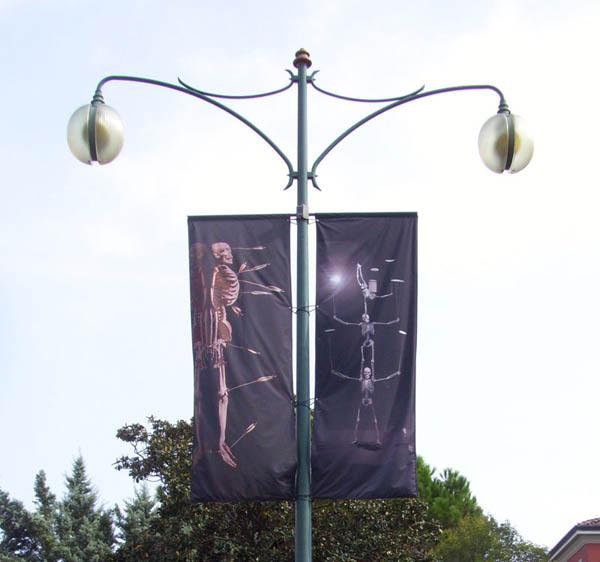Taiwan R.O.C. - MEI DEAN-E
In the past two decades, Mei Dean-E has been one of the most critical observers of Taiwan’s rapidly changing society. Mei’s research-based body of work that ranges from objects, ready-mades, paintings, drawings, photography and installation to video, is discursive as well as argumentative. It is sometimes humorous and often sarcastic. It possesses a subversive energy and touches upon issues such as memory, history, cultural identities, and the political ideology of Taiwan.
As a cultural and political analyst, Mei has established himself as a key figure dealing with the sensitive issue of Taiwan’s relations with China. Numerous collages and dadaistic objects often offer plain facts, such as the geographical disproportion of the two political bodies by means of symbols, including maps, flags, cultural icons, historical signs, and even a combined portrait of Mao and Sun Yat-sen, the “national father” of the ROC.
His projects Silk Roadof 1994 and Book of Xuang Zang of 1996 are exceptional in his ouvre in the sense that they both deal with a historical period that is considered the apogee of Chinese civilization. They also belong to his more contemplative pieces, especially the latter where imagination and realism subtly meet with an essayistic and poetic handling.
In recent years, Mei works on computer-generated digital artworks that appropriate received images from photographs, toys, uniforms, utensils, postcards, and objects from the early postwar period, things in fact from his childhood, or, as Mei calls them, they are endangered cultural objects threatened with extinction.
For the OPEN exhibition, Mei has submitted two works, Purgatory Democracy and Happy Festival. Both contain images of skeletons, symbols of death that reveal a prophetic and apocalyptical vision of his living environment. As he once said, he views the absurd displacements that occur within the confusion of politics and culture as characteristic of the dialectics of Taiwanese identity. He accordingly uses this to explain why in Taiwan issues of identity involve the inseparability of cultural and political reality.
Text by Yang Wen-I
